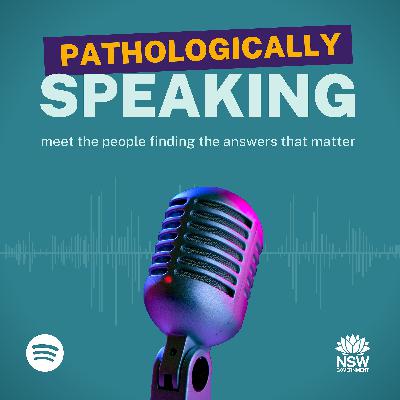
Pathologically Speaking
Author: NSW Health Pathology
Subscribed: 7Played: 49Description
Welcome to Pathologically Speaking – NSW Health Pathology’s official podcast.
Meet the people finding the answers that matter
Welcome to Pathologically Speaking – NSW Health Pathology's official podcast.
It's where we tell the stories of the people finding the answers that matter and season 2 is out now. Meet some of the best and brightest people working behind the scenes to protect and enhance the health, safety and well-being of our communities - at all stages of life.
Each episode of the podcast deep dives into some fascinating topics. This season you’ll hear from a forensic DNA specialist, a mycologist talking all things fungus, a genomics expert explaining how medicine is being tailored to your genes, and find out the surprising science behind ticks, bedbugs and medicinal maggots.
Our host, Liz Farquhar, chats to a fantastic line up of guests about their roles at NSW Health Pathology, their background, interesting stories of their job, discoveries, breakthroughs, career tips, personal and professional triumphs and hurdles, and the power of curiosity when finding the answers that matter to people.





